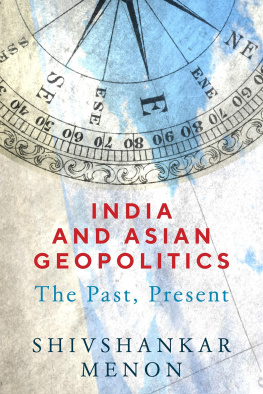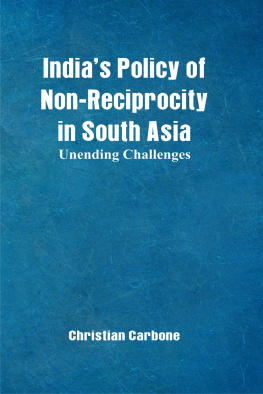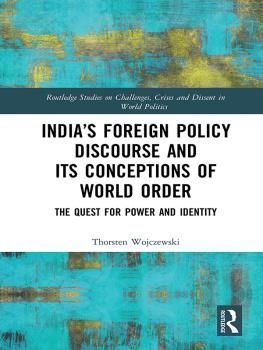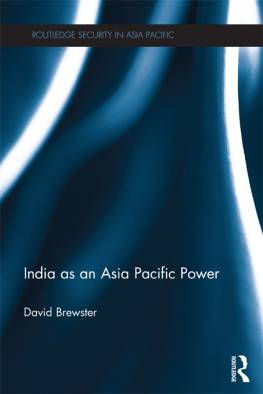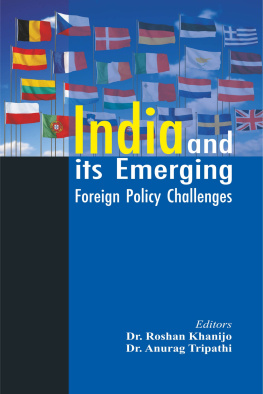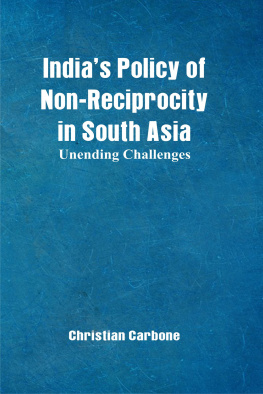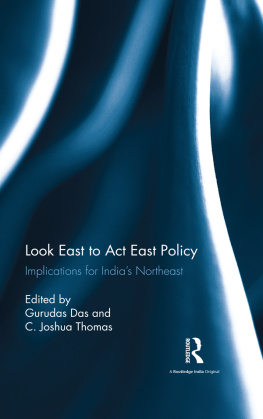Shivshankar Menon - India and Asian Geopolitics: The Past, Present
Here you can read online Shivshankar Menon - India and Asian Geopolitics: The Past, Present full text of the book (entire story) in english for free. Download pdf and epub, get meaning, cover and reviews about this ebook. year: 2021, publisher: Brookings Institution Press, genre: Politics. Description of the work, (preface) as well as reviews are available. Best literature library LitArk.com created for fans of good reading and offers a wide selection of genres:
Romance novel
Science fiction
Adventure
Detective
Science
History
Home and family
Prose
Art
Politics
Computer
Non-fiction
Religion
Business
Children
Humor
Choose a favorite category and find really read worthwhile books. Enjoy immersion in the world of imagination, feel the emotions of the characters or learn something new for yourself, make an fascinating discovery.
- Book:India and Asian Geopolitics: The Past, Present
- Author:
- Publisher:Brookings Institution Press
- Genre:
- Year:2021
- Rating:5 / 5
- Favourites:Add to favourites
- Your mark:
India and Asian Geopolitics: The Past, Present: summary, description and annotation
We offer to read an annotation, description, summary or preface (depends on what the author of the book "India and Asian Geopolitics: The Past, Present" wrote himself). If you haven't found the necessary information about the book — write in the comments, we will try to find it.
One of Indias most distinguished foreign policy thinkers addresses the many questions facing India as it seeks to find its way in the increasingly complex world of Asian geopolitics. A former Indian foreign secretary and national security adviser, Shivshankar Menon traces Indias approach to the shifting regional landscape since its independence in 1947. From its leading role in the nonaligned movement during the cold war to its current status as a perceived counterweight to China, India often has been an after-thought for global leaders--until they realize how much they needed it.
Examining Indias own policy choices throughout its history, Menon focuses in particular on Indias responses to the rise of China, as well as other regional powers. Menon also looks to the future and analyzes how Indias policies are likely to evolve in response to current and new challenges.
As India grows economically and gains new stature across the globe, both its domestic preoccupations and international choices become more significant. India itself will become more affected by what happens in the world around it. Menon makes a powerful geopolitical case for an India increasingly and positively engaged in Asia and the broader world in pursuit of a pluralistic, open, and inclusive world order.
Shivshankar Menon: author's other books
Who wrote India and Asian Geopolitics: The Past, Present? Find out the surname, the name of the author of the book and a list of all author's works by series.

